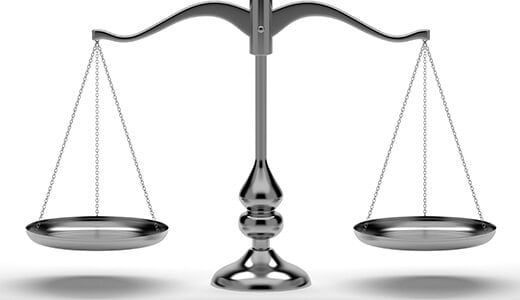
What happens at a hearing?
The information on this page relates to final hearings only.
The hearings processThe common procedure at the HCPTS is for panels to hear evidence and submissions on the facts alleged, the statutory ground of the allegation and the issue of impairment together. This may vary depending on the nature and complexity of the case. For example, the panel may separate the steps and make its decision on which facts it finds proved before going on to hear submissions on the statutory ground and impairment. |
WitnessesThe presenting officer for the HCPC sets out the factual background to the allegation and may call witnesses in support of the evidence. The witnesses enter the hearing, in turn, to give their evidence. The first stage of a witness giving evidence is called examination in chief. Once this has been completed witnesses may be cross examined by the registrant or their representative and re-examined. The registrant then has the opportunity give evidence to the panel and to call witnesses to support their case. The registrant, and any witnesses they call may be cross-examined by the HCPC presenting officer and re-examined. The panel are also likely to ask questions of the registrant and the witnesses called by both sides. When the Panel retires to make its decision, it needs to consider if any or all of the facts are proved. The Panel use the civil standard of proof (the 'balance of probabilities'). This means that the Panel will consider a fact proved if it finds that it is more likely than not to have happened. If the Panel decides that the facts alleged have not been proved, it will conclude the hearing at that point. If it finds any of the facts proved it will go on to consider the ground of the allegation. |
GroundsOn the basis of the facts which it has found to be proved, the Panel will go on to consider whether those facts amount to the statutory ground of the allegation (for example, misconduct or a lack of competence). Whether the proven facts amount to the ground is a matter of judgement for the Panel. There are five possible statutory grounds to an allegation. If the Panel decides that the facts do not amount to the ground, the hearing will conclude. If it decides that the ground has been established, it will move on to consider whether the registrant's fitness to practise is impaired. |
Decisions on impairmentThe Panel has to decide if the registrant's fitness to practise is currently impaired (rather than whether it was impaired when the events to which the allegation relates took place). In view of this, the Panel may need to know more about what has happened since those events occurred. If the Panel does not find impairment then the allegation is not well founded and the hearing will conclude. If the registrant's fitness to practise is found to be impaired, the Panel will then go on to consider what, if any, sanction should be imposed. |
Imposing a sanctionThe Panel will hear further submissions from the presenting officer and the registrant about what, if any, sanction should be imposed by the Panel. In reaching its decision, the Panel will have regard to the HCPC's Sanctions Policy. The purpose of fitness to practise hearings is to protect the public, not to punish registrants. In considering what sanctions to apply, public protection is the most importance consideration. The Panel must also take account of the interests of the registrant and the wider public interest. The public interest includes protecting service users, declaring and upholding standards for the profession concerned and maintaining public confidence in that profession and the regulatory process. At this stage the Panel may:
The Panel carefully considers the individual circumstances of each case and takes into account all that has been said at the hearing before making its decision. |




